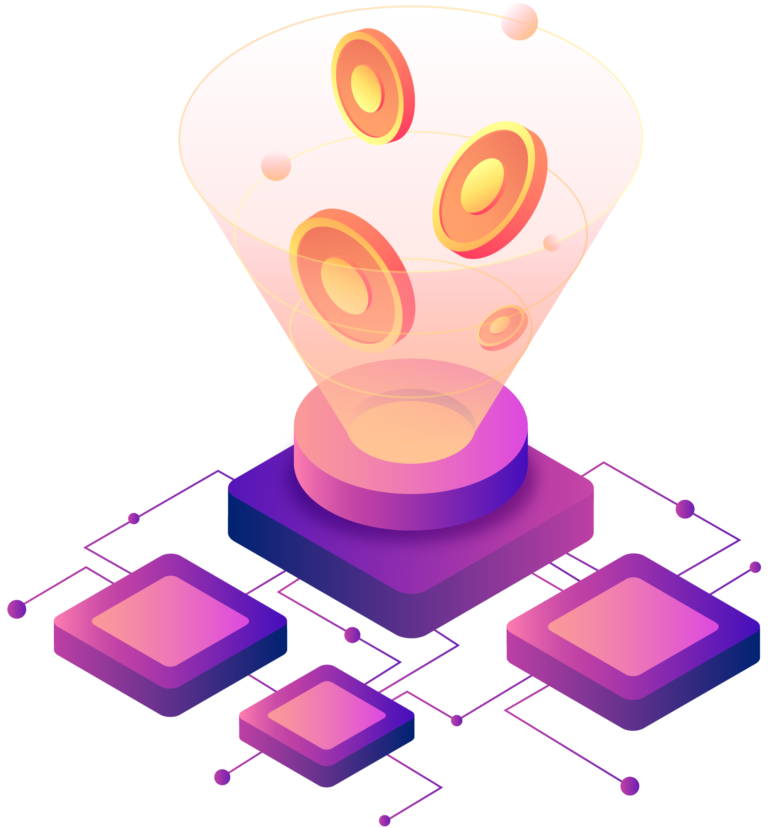We explore what tokenization is, how it works, and how it's revolutionizing the way assets can be issued, managed, and traded.
By Ki Chong Tran6 min read

Tokenize all the Things
Traditional asset management is a laborious process. It often requires the involvement of numerous middlemen, including various state bodies and regulators.
Assets such as stocks, bonds, property, or even land can often be prohibitively expensive and time-consuming to manage, putting them beyond the reach of the vast majority of the world’s population.
What’s more, traditional asset management typically involves complex legal agreements and lots of paperwork, which makes it all very difficult to track and transfer ownership. It’s a slow and cumbersome system—and one that often lacks sufficient transparency to prevent fraud and other forms of corruption.
Tokenization, while not without its own faults and regulatory hurdles, offers a radical new way of thinking about asset management—a reimagining of what is possible in the financial and technological world. We explore this new idea below.
What is a token?
Simply put: “A token is something representing something else, [and] can be rendered in any sort of form,” according to Joseph Lubin, co-founder of Ethereum and founder of blockchain venture studio ConsenSys. “It can be a piece of paper.
It can be an idea. It’s a symbol representing something,” he said. “Your driver’s license, for instance, is a token that’s indexed into a ledger that the state maintains of who’s legal to drive.” You can think of a blockchain-based token as a type of digital receipt for a slice of an asset. But unlike the receipts of old, these tokens are immutably logged on an auditable blockchain.
Did you know?
Blockchain technology and tokens have their origins in cryptocurrencies such as Bitcoin.
In 2009, Bitcoin introduced a peer-to-peer system for transferring value across the Internet. The Bitcoin blockchain is what makes it possible for transactions to be made in a decentralized, trustless, and immutable way—all while avoiding the so-called double-spend problem, preventing transactions from being fraudulently copied and duplicated digitally.
The innovation led entrepreneurs to envision new use cases for Bitcoin’s underlying technology. In 2015, Ethereum introduced the FinTech world to a programmable blockchain—a breakthrough made possible by Ethereum’s smart-contract technology.
Ethereum took the same technology that Bitcoin is built on and made it about more than just cryptocurrency and stores of value.Before long, thousands of tokens were developed on the Ethereum network, each with its own distinct attributes and benefits. Unlike cryptocurrencies, tokens have various potential use cases—anything from managing property, shares, and contracts to powering decentralized applications and games.
Token use cases
In general, there are two types of tokens: Utility tokens and security tokens.Utility tokens are digital assets that give their owners access to products or services produced by a company.
As the label implies, these tokens are meant to be used for something, rather than held or traded. For example, a utility token can provide access to a future service, such as renting computing power, placing a bet at a sports game or casting a legally binding vote.
Brave Software, the makers of the privacy-focused Brave web browser, created the Basic Attention Token, or BAT—a utility token designed for the advertising industry that monetizes the attention of web users.
Security tokens, on the other hand, are digital assets that represent an investment of some sort, such as a share in a company, a voting right in how the company operates, a unit of value, or some combination of the three.
These tokens can also represent parts of real-world assets, such as gold, classic cars or royalties from your favorite pop-song. As such, security tokens must comply with the existing regulatory frameworks that govern traditional securities, such as stocks.
As a result, an entire industry has developed to help tokenization entrepreneurs comply with applicable regulations.Securitize, a crypto startup backed by leading US cryptocurrency exchange Coinbase, is one such company that specializes in the issuance and management of digital securities, with the explicit aim of helping token issuers remain compliant.
Apart from utility and security tokens, there are also special non-fungible tokens, known as NFTs. These tokens represent unique digital collectibles, like those infectiously cute CryptoKitties that famously crashed the Ethereum network in late 2017.
Join Daily Debrief
Want the best of crypto news straight into your inbox? Join

To tokenize or not to tokenize…
The promise of tokenization rests in its potential to democratize access to digital assets, as well its ability to provide accountability, security, and provenance for these assets.
“Creating tokens that represent real-world assets that can be traded and provide accountability is enormously useful,” Paul Snow, founder, and CEO of Factom, told Decrypt.
People believe they own stock but they really don’t; they own a receipt for a stock and it’s kind of a ‘trust us’ process.
A blockchain-based system eliminates the need to trust in a middleman. But it also provides a better level of accounting, Snow explained, which can be particularly beneficial for businesses that deal in fraud prevention.On the other hand, Snow cautions that tokenization isn’t necessarily as easy as many once believed.
The rules that govern blockchains can get complicated, and these networks aren’t immune to their own forms of bureaucracy.
On top of that, regulators around the world, and in the United States in particular, are now paying very close attention to the cryptocurrency industry, with a close eye on the way tokens have been bought, sold, and distributed thus far.
And the rules over the sale, distribution, and management of tokenized assets will vary from country to country, crypto startups that aim to build global, borderless systems must now contend with regulatory and compliance measures in each of the jurisdictions that they expect to do business.
This, too, has now become a laborious and expensive process in its own right, especially in the United States, with many token-based companies opting to instead take their firms overseas where the rules are less stringent.
Nevertheless, U.S. regulators have shown recent signs of warming to tokenized assets, and blockchain entrepreneurs continue to develop innovative uses for tokenization, as well as solutions to improve the scalability of their respective networks.
The future
Tokenization promises a world where almost any asset or service can be represented and stored on a blockchain. The possibilities are theoretically endless. But much like the early days of the Internet, we are just starting to understand which ideas are best suited to this technology.
It’s still early days, but the transition toward a tokenized world could change the way we think about everything that holds real value.
-
- 1
Francisco Gimeno - BC Analyst Tokens, its uses, its future. A future digital tokenised 4th IR. We who usually read and think about this believe we understand. But even if that s true (and we know we have yet a lot to learn) most people haven't even heard about tokens. Information is key to transmit our belief in a better world.


